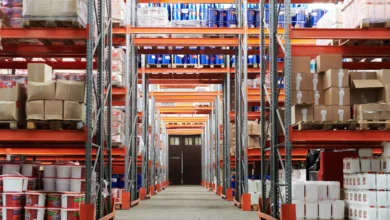6 Reasons Why You Need To Recycle in 2024

In 2024, the imperative for recycle has become more critical than ever before. With environmental concerns escalating and the impact of climate change evident, recycling stands as a crucial practice for sustainable living. This guide explores six compelling reasons why individuals and communities should prioritize recycling in 2024, emphasizing the positive effects on the environment, economy, and overall well-being.
1. Environmental Conservation and Resource Preservation:
In the ever-evolving landscape of environmental consciousness, the importance of recycling becomes increasingly relevant. Recycling serves as a cornerstone for environmental conservation and resource preservation. By diverting waste from landfills, recycling minimizes the strain on natural resources and mitigates the environmental impact of manufacturing processes. The importance of recycling extends beyond waste reduction; it contributes to energy savings and reduces greenhouse gas emissions associated with the production of new materials.
In 2024, as sustainability takes center stage, embracing recycling practices emerges as a proactive measure to safeguard our planet’s delicate ecosystem. Recycling embodies a collective responsibility to steward Earth’s resources wisely, fostering a more sustainable and resilient future for generations to come.
2. Waste Reduction and Landfill Diversion of Recycle:
Recycling aids in waste reduction by diverting materials from landfills. Landfills are not only unsightly but also emit harmful gases and leachates, posing threats to soil and water quality. Recycling helps alleviate the burden on landfills, extending their lifespan and minimizing the environmental hazards associated with excessive waste disposal.
Landfills contribute to soil degradation, water pollution, and the emission of methane, a potent greenhouse gas. Recycling reduces the volume of waste sent to landfills, decreasing the environmental impact of waste disposal. By diverting materials through recycling programs, communities can work towards achieving zero-waste goals and fostering a more sustainable waste management system.
3. Energy Conservation and Carbon Emission Reduction:
Recycling is an effective means of conserving energy compared to the production of goods from raw materials. The extraction, processing, and transportation of raw materials consume significant energy. Recycling, on the other hand, often requires less energy, resulting in lower carbon emissions and contributing to the global effort to combat climate change.
The energy-intensive processes involved in mining, refining, and manufacturing from raw materials contribute to greenhouse gas emissions. Recycling reduces these emissions by utilizing materials that have already undergone processing. By conserving energy, recycling becomes an integral part of efforts to mitigate climate change and transition to a more sustainable and low-carbon future.
4. Job Creation and Economic Benefits:
The recycling industry provides employment opportunities and economic benefits. Recycling facilities, collection centers, and related businesses contribute to job creation. As recycling gains prominence, the industry’s growth stimulates economic activity, creating a positive ripple effect on various sectors and local economies.
Investing in recycling infrastructure and programs fosters economic development. Jobs are created in areas such as collection, sorting, processing, and manufacturing of recycled materials. The recycling industry not only offers employment opportunities but also contributes to a circular economy, where materials are continuously reused, creating a sustainable and regenerative economic model.
5. Preserving Biodiversity and Ecosystem Health:
Recycle plays a role in preserving biodiversity and maintaining ecosystem health. Resource extraction and habitat destruction associated with obtaining raw materials can lead to the loss of biodiversity. By recycling materials, we reduce the pressure on ecosystems, helping to safeguard plant and animal species and maintain the delicate balance of natural environments.
Habitat destruction, pollution, and climate change linked to resource extraction and manufacturing processes pose threats to biodiversity. Recycling lessens these threats by decreasing the need for continual extraction. Preserving biodiversity is crucial for ecosystem resilience and the overall health of the planet, making recycling a key practice for sustainable coexistence with nature.
6. Educational and Behavioral Impact of Recycle:
Engaging in recycling initiatives fosters environmental awareness and responsible behavior. Recycling programs educate individuals and communities about the environmental consequences of waste and the importance of sustainable practices. This educational aspect has a long-lasting impact, influencing behavior and instilling a sense of responsibility towards the planet.
Recycling initiatives create opportunities for environmental education and awareness campaigns. When individuals actively participate in recycling programs, they become more conscious of their consumption patterns and waste generation. This heightened awareness can lead to broader behavioral changes, influencing individuals to adopt more sustainable lifestyles and advocate for environmentally friendly practices in their communities.
Conclusion:
Recycling in 2024 is not just responsible but necessary for a sustainable future. Why recycle? Environmental conservation, waste reduction, energy conservation, economic advantages, biodiversity preservation, and educational effect. Individuals and communities that recycle help the Earth, economy, and lifestyle become more sustainable. In the face of enormous environmental concerns, recycling is a strong and practical step toward a more sustainable and peaceful future.




